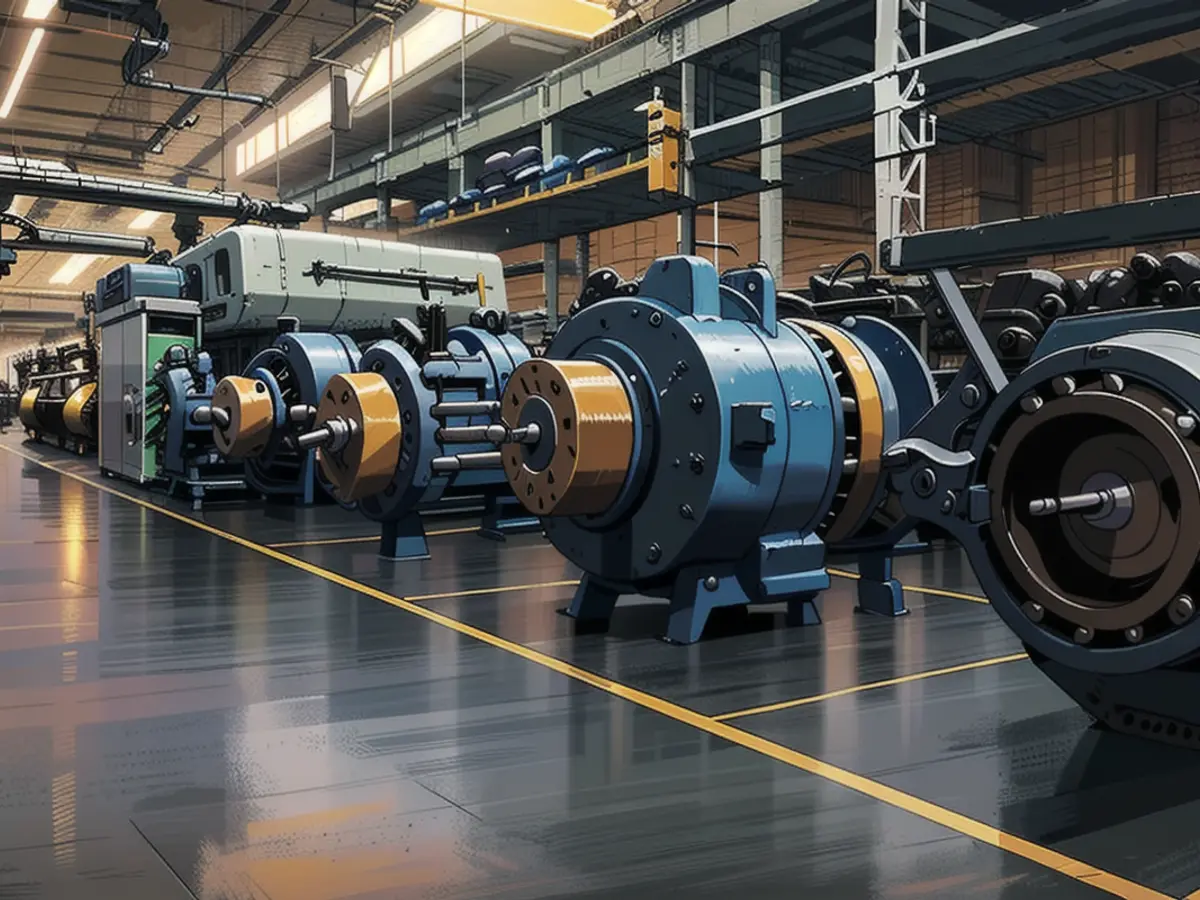Businesses show less optimism towards China's future.
EU firms operating in China view their future growth prospects in a more negative light compared to previous years, as revealed in a study by the EU Chamber of Commerce. This negative outlook is largely attributed to difficulties such as weak domestic demand, high levels of debt, and a lack of trust in the Chinese government.
In the latest annual business survey by the chamber, 23% of the companies questioned were pessimistic about their growth prospects over the next two years - quite a jump from the meager 9% found in the previous year. Contrarily, the amount of optimistic companies dropped drastically from 55% to 32% - a new record low. The report highlighted a prevailing environment of "uncertainty" for European companies in the country following the pandemic.
European firms were initially hopeful as China started opening up following the pandemic, but “deeper structural issues” soon emerged, dampening their spirits. These included weak domestic demand, high government debts, and persistent real estate sector challenges. Companies also found themselves at odds with the government, due to conflicting messages being conveyed.
Despite these challenges, economic concerns were the primary issues for the companies, followed by the sluggish global economy. Tensions between the US and China, as well as other geopolitical issues, have also weighed heavily. Added to this, they are increasingly feeling the heat from Chinese domestically-owned competitors.
Problems with regulatory barriers
On the regulatory front, the survey participants had little to be cheerful about. A mere 16% expected a decrease in regulatory obstacles – the lowest in over two decades. This has contributed to a significant change in the attitude of companies towards China as an investment destination. The proportion of companies naming China as a top current and future investment location fell to historically low levels of 15% and 12%, respectively. The survey states that EU companies are now funneling funds into markets viewed as more reliable, transparent, and predictable.
What's more, a record-low 42% of respondents plan to expand their current China operations in the coming year. Moreover, there's a noticeable drop in reinvesting profits in the country.
Excessive production and high unemployment
Another significant factor affecting the Chinese business landscape is the prevalence of overcapacity in many sectors. According to the survey, almost two-thirds (64%) of respondents noted overcapacity in their respective industry. Additionally, 10% expected such a scenario in the near future. The construction industry was the most afflicted, with 69% acknowledging overcapacity. The second-worst affected sector was the automotive industry (62%). These high levels of overcapacity can be largely blamed on overinvestment in domestic production. Not enough demand – both within China and globally – is also identified as a problem.
On Monday, European Commission President Ursula von der Leyen voiced her concerns on the matter and declared the EU would no longer tolerate China's current subsidy and trade practices. She cited weak domestic demand as the main reason for China's production exceeding its sales through significant subsidies and argued the EU would consider imposing tariffs on imported electric cars from China. Last year, the EU Commission declared its intention to scrutinize punitive tariffs on electric cars from China.
Read also:
- Lack of snow also opens up new opportunities for winter tourism
- Abrupt end to e-car subsidies
- The chemical industry has little confidence
- Intersport boss hopes for sales boom through sporting events
The Economic situation in China, as seen by EU companies, is one of the primary concerns affecting their growth. Despite initial optimism post-pandemic, challenges such as weak domestic demand, high government debts, and tensions with the US have dampened their spirits. (EU, Economic situation, China, The company, Growth)
In light of these difficulties, EU firms are increasingly looking towards more reliable, transparent, and predictable markets for investment, decreasing their investments in China. (EU, Economic situation, China, The company, Growth)
Source: www.ntv.de








